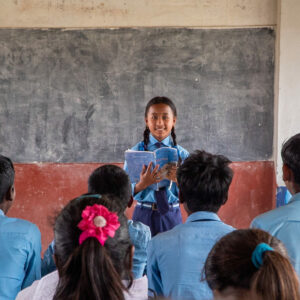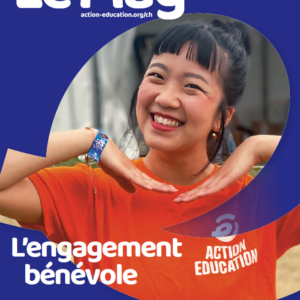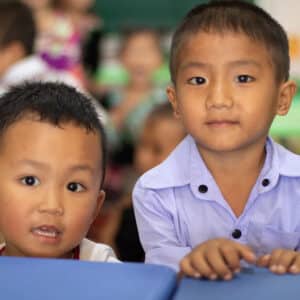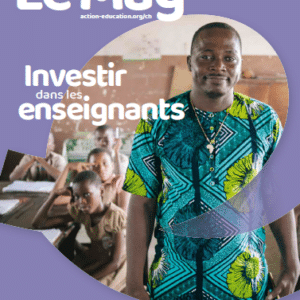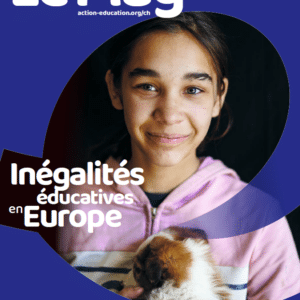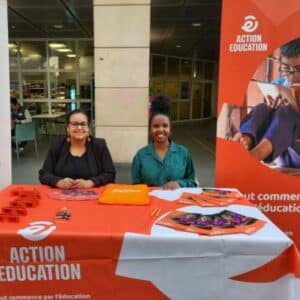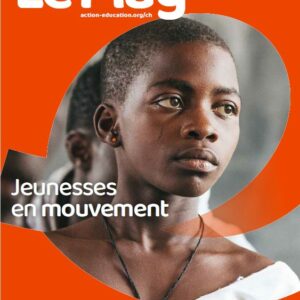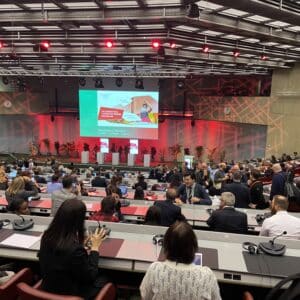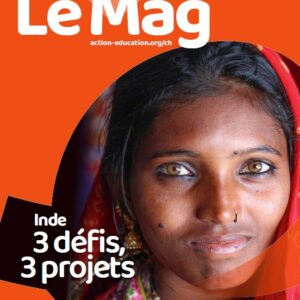The closure of schools and the long months of confinement imposed by COVID-19 have resulted in significant learning losses for all children. Children from the most vulnerable and marginalized communities have been more severely affected than others, says the new report published by Aide et Action on the occasion of International Education Day.
"Covid-19: its impact on migrant children in Tamil Nadu presents the results of a study carried out from January to October 2021 in India on 466 migrant children who had suffered the full force of the various confinements and social restrictions imposed by the COVID-19 pandemic. The conclusion is clear: of the 466 children interviewed, 272, including 160 girls, had no access to education during the containment. These children, who are among the most vulnerable to dropping out of school, have literally not studied for the past 20 months. There is now a great risk that they will never be able to get back into education.
Children more than vulnerable
India has nearly 100,000 so-called migrant children: they follow their parents, who have no other option for survival than to leave their native villages to join the large urban centres and work in the booming construction or textile sectors. The families live in shanty towns near the workplaces. In this context of extreme poverty, children are rarely re-enrolled in public schools in the Indian states where they settle, partly because of the language of instruction, which they do not speak. Most of the time, these children are either put to work or receive the support of development organisations, such as Aide et Action, which has built reception centres on the same sites where the parents work, allowing for the daily care of the children. Childcare professionals supervise them and guarantee them access to learning, food, care and play. But like all countries, India, faced with the spread of COVID-19, has been forced to confine and has put in place educational alternatives, particularly digital ones. Unfortunately, these already very vulnerable children were mostly excluded due to the lack of access to digital tools.
Isolated and exposed to the worst abuse
Faced with the full force of the digital divide, these children found themselves isolated, with no support and no outside help possible. Accustomed to living in shanty towns, under iron sheets, the children lived for months in deplorable conditions, locked up in rooms of a few square metres, with 10 or 15 people, in extreme heat that could reach 45 degrees. Such an environment deprived them of learning, of course, but also of well-being, fun and fulfilment. They had no access to clean water, sanitation or even simple soap. Out of 466 children interviewed, barely half (49%) said they had been given masks to wear, only 42% said they washed their hands, and barely 37% said they respected social distancing. Without access to school, these children have lost months of access to health and nutrition services, and to childcare professionals who can protect them from violence and abuse. The crisis has particularly affected their mental health: 215 children reported spending their day wandering in the slums, 40% have taken to sleeping for a maximum of time. 32% explained that they watched TV during the confinement. Nearly 10% reported following their parents to their workplaces and helping them, 15% reported facing early marriages, 25% were forced to work, and 16% reported being physically and mentally abused. Today, most of these children remain traumatised by this period of confinement and are deeply unhappy.
Our recommendations
The COVID-19 crisis has exacerbated the deep inequalities in the Indian education system. The state has failed to provide schooling to all children between the ages of 9 and 14 as required by law. The more schools remained closed, the more migrant children were deprived of their fundamental rights, locked in extremely cramped places where sitting for even an hour is impossible. Faced with such a situation, Aide et Action is sounding the alarm and is calling for the implementation of a long-term plan to meet the specific needs of these traumatized populations.
We ask:
- the application and absolute guarantee of the right to education for all, without exception or discrimination with, for example, the creation of schools close to the places where these children live with the presence of teachers who speak their native languages,
- preparation for a return to school for these children with a precise recognition and study of the learning losses and the exact level of the pupils when the schools reopen.
- Training and support for teachers in new pedagogies and psychosocial skills to meet the needs of children who have experienced trauma, sexual and physical violence.
- Finally, we call on the government to provide a comprehensive and multi-sectoral response in partnership with civil society and business, and community organisations
All our findings and recommendations can be found in "Impact of the COVID-19 on the Learning of Migrant Children in Tamil Nadu, Aide et Action, Action Aid, Arunodhaya, Tamilnadu Alliance, Institute of Human Rights Advocacy Chennai, November 2021.



